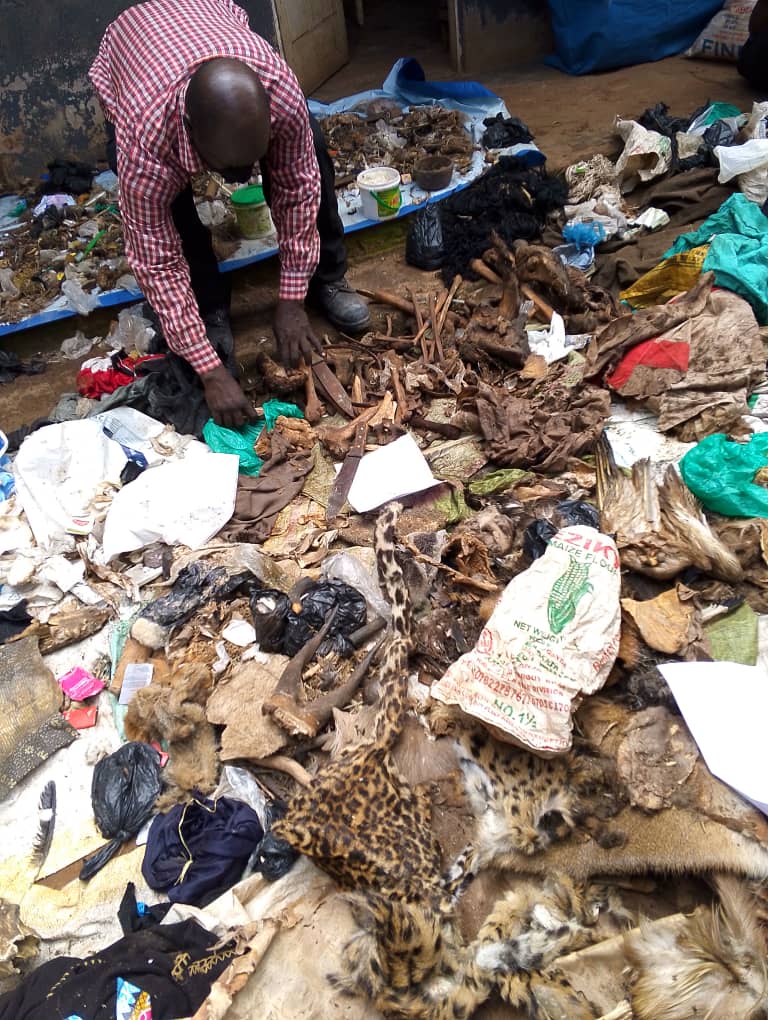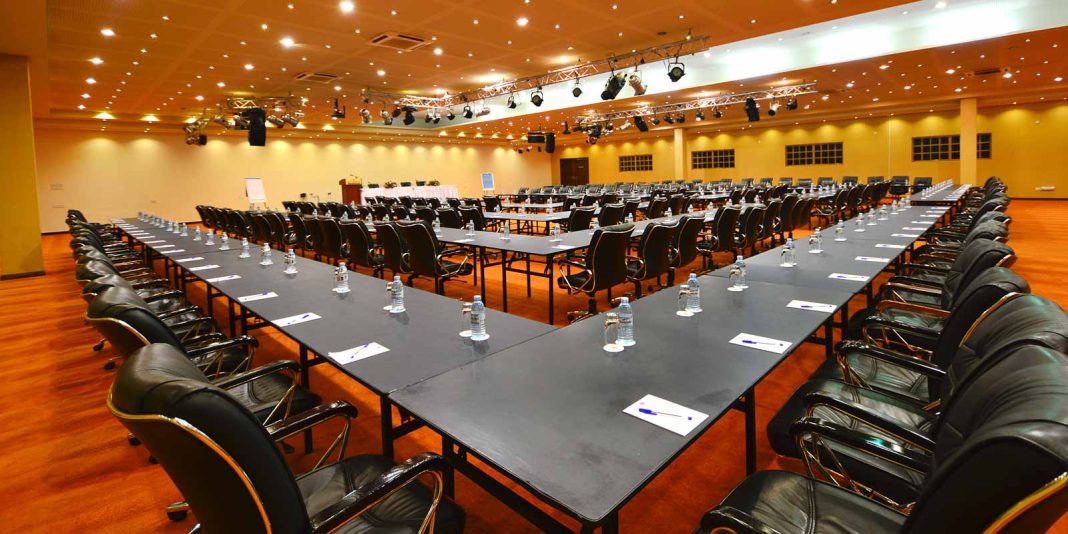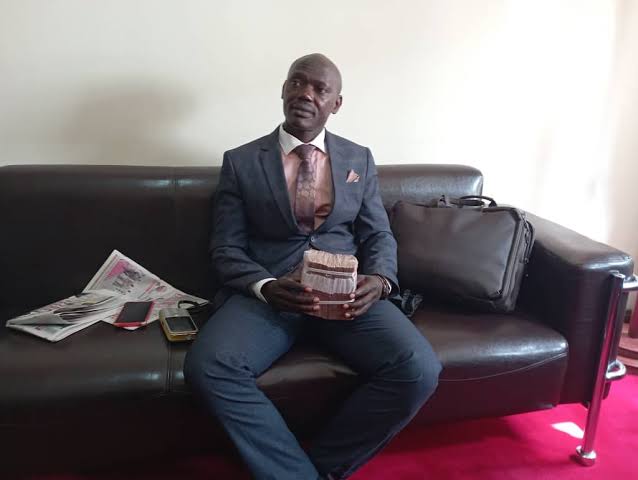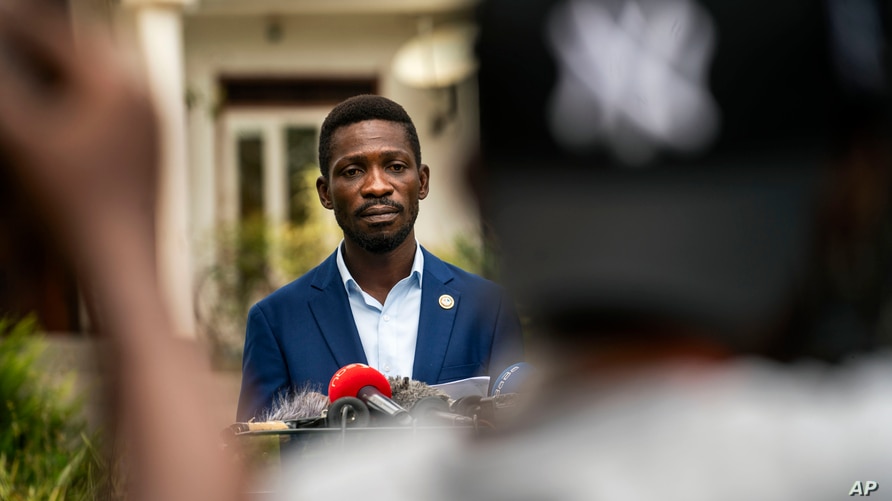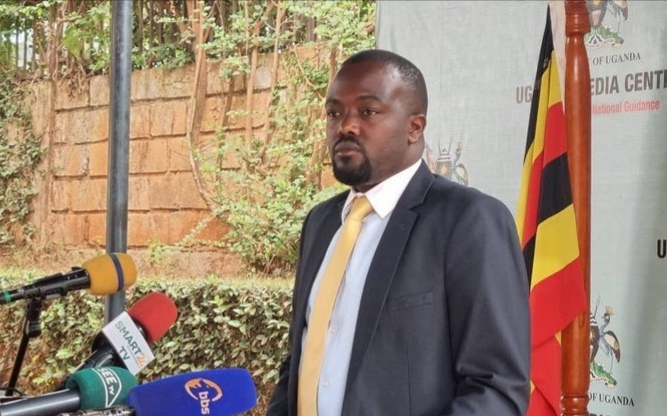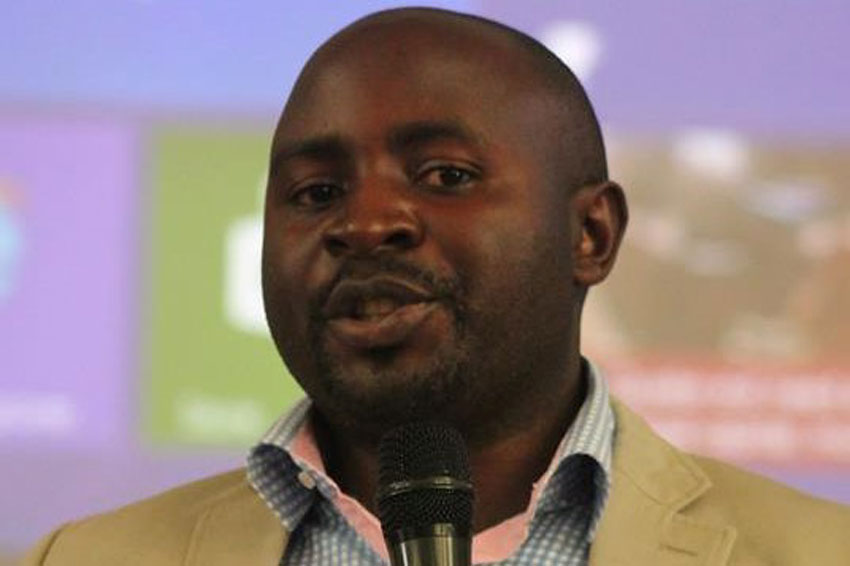In a shocking and disturbing turn of events, six traditional herbalists in Jinja have been arrested and taken into custody by the Kiira Regional Police Command.
The suspects in the bizarre incident have been named as Afani Zubairi, 62, Ibrahim Iswezi, 42, Ronald Mukasa, 51, Nathan Nantaika, 32, Herman Wabitotya, 18, and Sharif Mugere, 18, who were found with sacks of dead human bones and skeletons in their operating shrines.
The arrests were made possible through successful prosecution-guided operations and investigations led by the usually quiet RPC SSP Charles Nsaba, with technical guidance from Regional CID Chief Monday Johnson Agaba and involvement from DPC Buwenge CPS SP Morris Oyee.
The operations were prompted by widespread public outcry over the suspicious activities of these traditional herbalists, some of whom claimed to be “doctors.”
According to reports, the herbalists had been demanding human bones, skeletons, and blood from their clients, who eventually became suspicious of their intentions.
It is suspected that these demands are linked to cases of tampering with graves, with the herbalists allegedly using the remains for rituals to “heal” clients or dispel bad omens and spirits, or offer blessings for wealth and job placements.
The Kiira Regional Police spokesperson, SP James Mubi, has urged members of the public with grievances against these herbalists to file formal complaints with the police.
The suspects are currently undergoing rigorous interrogation and are likely to face charges of disturbing the peace of the dead, a criminal offence under the Penal Code Act.
SP James Mubi has also challenged the suspects and members of the general public to engage in lawful and meaningful economic activities, such as joining SACCOs and benefiting from anti-poverty programs like Emyooga and PDM.
This incident serves as a stark reminder of the dangers of illicit activities and the importance of promoting legitimate and sustainable livelihoods.
The police have also asked the people of Jinja and beyond to remain vigilant and report any suspicious activities to the authorities.
“…together, we can create a safer and more just society, free from the shadows of ritualistic practices and deceit…”, Mubi appealed.
The Uganda Police Force has announced that the human bones and skeletons recovered from the shrines of six traditional herbalists in Jinja will undergo forensic analysis at the Wandageya state lab to confirm their origin.
Forensic Analysis Aims to determine the species of the remains (human or animal), identify the age, sex, and ancestry of the remains (if human) and detect any signs of trauma, injury, or foul play.
“…the forensic analysis will help us understand the scope of this case and potentially identify the sources of these remains, we are working closely with experts to ensure a thorough investigation…,” said SP James Mubi.
According to detectives, if the remains are confirmed to be human, the six traditional herbalists may face additional charges, including murder, trafficking in human remains, and desecration of graves.
The victims or clients of these herbalists are often vulnerable individuals seeking solutions to pressing life issues.
The common vulnerable groups are desperate women and young ladies seeking fertility treatments or remedies for barrenness.
Others are those facing social pressure to bear children who can be manipulated into undergoing harmful or unnecessary procedures, men pursuing jobs, wealth, or financial stability can also be convinced to use magical means purportedly to achieve success.
Investigators say criminals attempting to evade law enforcement in a desperate move to seek “protection” or “fortification” against arrest or prosecution or those involved in organized crime or violent activities always rush to these herbalists.
These errant herbalists always exploit these vulnerabilities using emotional manipulation, false promises, misrepresentation of their abilities, charging exorbitant fees, and using fear, intimidation, or coercion.
Do you have a story in your community or an opinion to share with us: Email us at Submit an Article



